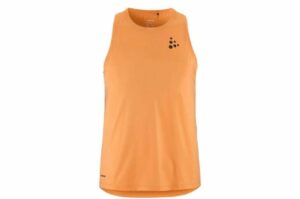Walking isn’t running
Rory Gilfillan says run, don't walk.
After reading my colleague Rebecca Gardiner’s post about her latest race, it inspired me to write this rebuttal.
In the summer of 1978, I ran a three-mile Fun Run. In those days, prior to the metric system, before there were prizes for age groups and trinkets for showing up, the only person who would have received any kind of recognition would have been the person who won. I had been in races before both during phys-ed class and recess where a win in a race across the yard bought bragging rights for the afternoon. But the three-mile race was the first time I covered a significant distance without having to stop and walk. It would have carried no weight at school on Monday and even then I knew that the accomplishment was deeply personal. Years later, after an accumulation of countless races, personal bests, humbling defeats, and experiencing the singular devastation of feeling the wheels come off in the final miles of a marathon, when all else fell apart, running without stopping still mattered.
It’s a distinction that has been lost. In a sport where running the entire distance of the course ought to be the primary and animating principal or, at the very least, the fundamental criteria for measuring performance, it’s a stark reminder of what happens when participation is divorced from honest and quantifiable assessment.
Over the last several years I have taken an inordinate amount of abuse for stating, unequivocally, and often caustically, that not every performance is worthy of celebration, that a 6:30 marathon is not on the same plane as a 2:30 marathon. I have been most often called “elitist,” which for the most part I agree with, and my standing as a teacher has been questioned and calls for my dismissal from the profession have become a common theme. Ironically, if I held myself to the same marginal standards in teaching as many others do in running, I would lose my job. What does a six-hour marathon look like at work? What if we celebrated the six-hour marathon equivalent of a math or spelling test? What does our world look like when we gauge all effort and achievement as being the same?
To believers in this ideology, and experience tells me that this is the majority, prepare to be offended by some unvarnished truth:
First, there is no such thing as a “four-hour barrier” in a 42K race any more than a physiological “wall” embedded in a 5K. Using the language of Roger Bannister’s achievement doesn’t make a pedestrian aspiration in the marathon any less pedestrian.
Second, if you have to walk in a race, at any time, you may be considered a “smooth runner,” but it’s difficult to comprehend what this accolade actually means. Winning an age group prize doesn’t change this fact, but brings into sharp relief both the moribund nature of the competition and the amount and quality of training that was put in prior to the race.
Finally, running is a sport. Self-actualization and weight loss are often the benefit of participation but take away the bands that litter the modern marathon course, the water stations every 3K, the “technical t-shirts,” it’s a contest of speed over long distance that demands rigorous training, sacrifice and above all, respect.
For some of us running matters in a way that casual bloggers and columnists can’t begin to understand. It’s the kind of understanding that comes from self-inflicted suffering that kicks in on the tail end of a 100-mile week that was fit in and around work and family, running through injuries, eating Advil like Smarties, discovering the new pharmaceutical frontiers provided by Naproxen and cortisone injections, and laying down 19 miles on a humid Sunday afternoon because this is what the log demanded.
However, it’s also a big sport and there is room for all kinds of people, agendas and narratives. But at the bare minimum, there should be an expectation that athletes who find the courage to step to the start line have also trained enough to be able at least aspire to run the length of the course without stopping to walk.

